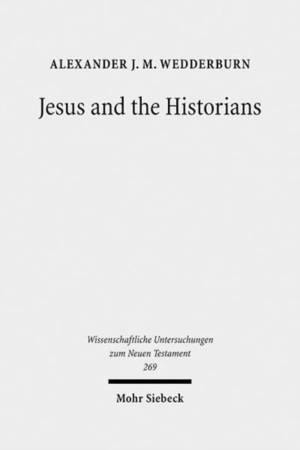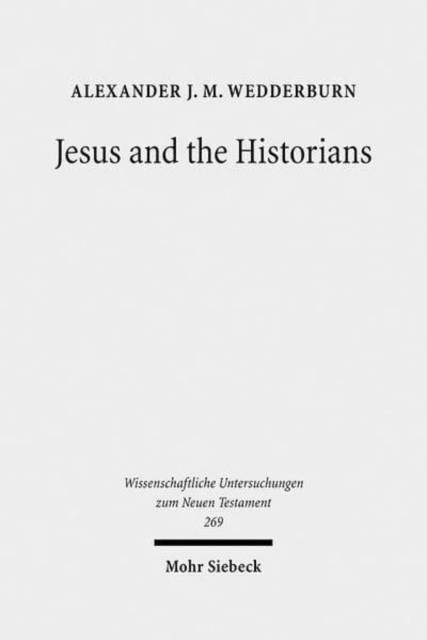
- Afhalen na 1 uur in een winkel met voorraad
- Gratis thuislevering in België vanaf € 30
- Ruim aanbod met 7 miljoen producten
- Afhalen na 1 uur in een winkel met voorraad
- Gratis thuislevering in België vanaf € 30
- Ruim aanbod met 7 miljoen producten
Zoeken
Omschrijving
Much has been written about the life of Jesus in works that often claim to be historical and to employ historical methods. Yet only sometimes are the methods and the presuppositions involved made explicit. However, it has also been claimed more recently that a decisive change in our view of the nature of historical knowledge and methods has taken place, in that the 'modern' has given way to the 'postmodern'. After a survey of a number of books on Jesus that have raised the question of how his life should be studied historically, Alexander J. M. Wedderburn starts by looking at such claims, asking how new and how valid the insights involved in what claims to be a new historiographical epistemology in fact are, before turning to look at a number of problems raised by recent studies of the life of Jesus that are relevant for the work of the historian: the nature of the sources available to us and how to use them and the criteria and principles to employ; the role played by the early Christian communities' memories of Jesus and the extent to which this enhances their trustworthiness or gives reason for caution; the extent to which the traditions about Jesus were transmitted orally and the implications of this for the reliability of these traditions; and, finally, the questions how far we can investigate how Jesus understood his work and to what conclusions a historical study of this could lead us as well as the implications of this for christology.
Specificaties
Betrokkenen
- Auteur(s):
- Uitgeverij:
Inhoud
- Aantal bladzijden:
- 383
- Taal:
- Engels
- Reeks:
Eigenschappen
- Productcode (EAN):
- 9783161507083
- Verschijningsdatum:
- 31/12/2010
- Uitvoering:
- Hardcover
- Formaat:
- Genaaid
- Afmetingen:
- 153 mm x 229 mm
- Gewicht:
- 734 g

Alleen bij Standaard Boekhandel
+ 271 punten op je klantenkaart van Standaard Boekhandel
Beoordelingen
We publiceren alleen reviews die voldoen aan de voorwaarden voor reviews. Bekijk onze voorwaarden voor reviews.








